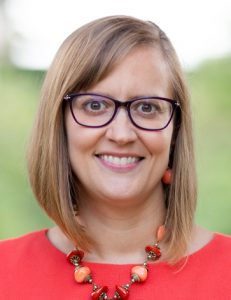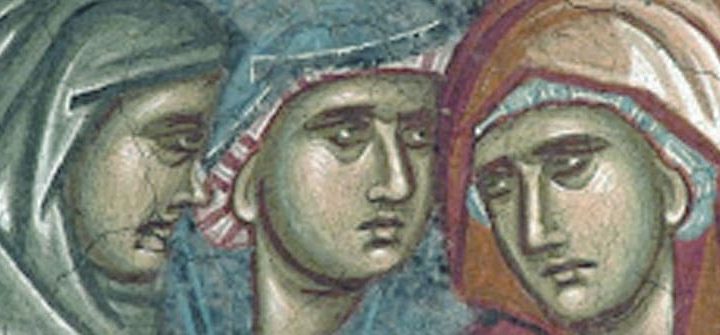What roles should women fill in Southern Baptist churches? Worship leader? Youth minister? Senior pastor? A group of Southern Baptists is convinced women who feel called to be pastors must have misunderstood God’s voice.
These Southern Baptists will try to win votes at the denomination’s annual meeting in New Orleans June 13-14. Pastor Mike Law of Arlington, Va., has proposed an amendment to the Southern Baptist Convention’s constitution stating SBC churches cannot “affirm, appoint or employ a woman as a pastor of any kind.” In addition, the SBC Executive Committee has voted to name five churches with women pastors “not in friendly cooperation with the convention.” Two of these churches are appealing that decision.

Melody Maxwell
From the SBC’s beginnings in the mid-19th century, its leaders have assumed pastors would be men. Not only were women not allowed to preach; for years they also were prohibited from speaking to groups that included men. When Woman’s Missionary Union was formed in 1888, its founders assured the SBC’s leaders the organization was an “auxiliary” to the denomination rather than an independent mission board. In WMU’s early years, its leaders asked men to give the organization’s report at the SBC annual meeting. The women remained silent and submissive — at least publicly.
Behind the scenes, women carried out (and continue to carry out) much of the informal work of the church, from fundraising to teaching young people to serving meals. In the mid-20th century, some women began to serve as directors of religious education in Southern Baptist churches. In this role, they coordinated educational programs for children and adults. They were not ordained and were not considered ministers in the same sense as men who served as pastors.
That began to change in the 1960s and 1970s as some Southern Baptist women sought ordination, influenced in part by the women’s movement of the time. Watts Street Baptist Church in Durham, N.C., ordained Addie Davis in 1964; other churches eventually followed suit. By 1978, SBC agencies held a consultation on women in church-related vocations, with participants sharing views such as “women have long been victims of trivialization.” The denomination appeared on track to allow women to serve in all pastoral roles.
This changed, however, with the SBC’s turn to the right in the 1980s and 1990s. Led by a coalition of leaders concerned about liberalism within the convention, this “conservative resurgence” (or “fundamentalist takeover,” as opponents put it) reshaped the boards of SBC entities. A key issue in this controversy was the role of women.
In 2000 the Baptist Faith and Message was revised to state that “a wife is to submit herself graciously to the servant leadership of her husband” and “the office of pastor is limited to men as qualified by Scripture.” Several SBC entities required their staff to sign this document. Some churches with female ministers became affiliated with the Cooperative Baptist Fellowship or the Alliance of Baptists rather than the SBC.
Yet some churches with female ministers also remained part of the SBC (or affiliated with multiple conventions). In recent days, debate has centered on whether it is biblical for women to serve as pastors — whether senior pastors, children’s pastors or any other type of pastor. This issue came to a head in 2021 when Saddleback Church, the largest church in the SBC, ordained three women. Despite a plea from founding pastor Rick Warren, the church was disfellowshipped as part of the Executive Committee’s February 2023 vote. Saddleback is one of the two churches appealing this decision at the June annual meeting. Warren also has created a website calling for “unity on mission” within the SBC.
All eyes are now on the messengers attending this meeting in New Orleans. Will they codify the SBC’s tradition of barring women from leadership over men? Or will they allow churches with female pastors to remain in the convention — a nod to the autonomy of local churches in Baptist polity, but a break in precedent within a conservative denomination?
Only time will tell. Whatever the outcome, the messengers are sure to be making history.
Melody Maxwell serves as associate professor of Christian history and director of the Acadia Center for Baptist and Anabaptist Studies at Acadia Divinity College in Wolfville, Nova Scotia. Her research focuses on Baptist women from the late-19th century to the present.
Related articles:
Rick Warren apologizes to women for his previous views on church leadership
An open letter to all Southern Baptists | Opinion by Rick Warren
A primer on why Southern Baptists are fighting over women in ministry once again | Analysis by Mark Wingfield
Scripture changed his mind on women in ministry, Rick Warren tells Russell Moore
If you’re going to quote 1 Timothy 3:2, be sure to read Exodus 20:17 | Opinion by Brad Bull
I knew the truth about women in the Bible, and I stayed silent | Opinion by Beth Allison Barr


